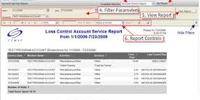Employee stock ownership refers to a situation in which a company’s employees own a portion of the company’s stock or shares. This can take various forms, such as stock options, restricted stock units, or employee stock purchase plans.
Employee stock ownership, also known as employee share ownership, occurs when employees of a company own stock in that company (or in the parent company of a group of companies). Employees in the United States typically acquire shares through a share option plan. Employee Share Purchase Plans, in which deductions from an employee’s salary are made to purchase shares over time, are common in the United Kingdom.
Employee stock ownership can have several benefits for both the employees and the company. For employees, it can provide a sense of ownership and pride in the company, as well as financial benefits if the stock price increases. It can also serve as an incentive to work harder and contribute to the company’s success.
In Australia, it is common to have all employee plans that provide employees with $1,000 in tax-free shares. Such plans can be selective or all-inclusive. Selective plans are typically available only to senior executives. All-employee plans allow all employees to participate (subject to certain qualifying conditions, such as a minimum length of service).
For the company, employee stock ownership can improve employee retention and motivation, as well as align employee and shareholder interests. It can also provide a source of capital for the company if employees purchase shares through an employee stock purchase plan.
Most businesses use stock ownership plans as a type of employee benefit. Plans in public companies typically limit the total number or percentage of the company’s stock that employees may acquire under a plan. In comparison to worker cooperatives or co-determination, employee share ownership may not provide employees with meaningful control or influence over the corporation’s governance and management.
An Employee Stock Ownership Plan (ESOP) is a type of retirement plan. However, it is much more than that: ESOPs motivate employees, increase productivity, improve worker retention, keep jobs in the community, contribute to business longevity, and so much more.
Employee stock ownership plans (ESOPs) increase employee engagement. When ESOPs are established, shares of company stock are distributed to all employees, transforming them into employee owners who share in the benefits if the stock rises and the risks if the stock falls. As a result, they are more invested in the company’s success and are more likely to address issues, such as assisting underperforming coworkers.
Overall, employee stock ownership can be a valuable tool for companies looking to build a strong, motivated, and engaged workforce. However, it’s important to design the program carefully to ensure that it’s fair, transparent, and meets the needs of both the employees and the company.
















